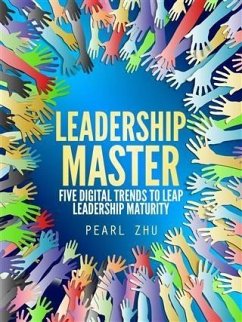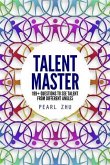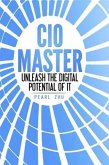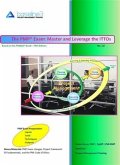Chapter 1 Thought leadership: At today's "digital dynamic with increasing speed of changes and hyper-competition, being a thoughtful, mindful and multi-dimensional thinker is more crucial to improve leadership effectiveness. Authenticity is the foundation to be a Thought Leader. Digital leadership is less about "HOW," more about "WHY," and "WHAT." Leadership brand is less about what you look - the stereotypical leadership, and more about what you think - Thought Leadership. The digital Thought Leaders of the future sense, feel, read, imagine and intuit possibilities in the digital paradigm shift. The digital brainstorming is happening in real time with people and plays spontaneous networks of human and business operational concerns, to co-solve many thorny problems and overcome numerous challenges facing humanity. Being a Thought Leader also means you truly understand the purpose of leadership. Why do you want to be a leader, and which value can you bring in. Being able to quickly articulate the value that you bring to others is critical to helping others learn about how you can benefit them.
Chapter 2 Creative leadership: Creativity becomes significantly important in the age with the advanced technologies because the leaders of the future will not be mere automatons. Great leaders are pioneers, innovators, and creators of a better context. Creative leadership is the unique combination of a growth mindset and leadership behaviors that develop and achieves high-quality results over a sustained period of time and risk tolerance.
Chapter 3 Global Visionary Leadership: Leadership is forward-looking, to make progress. Leadership starts with having a vision, then develop a plan to achieve it. Top leaders are visionary roles, they set the direction for the enterprise (internal and/or external) to step into the uncharted water, and they orchestrate the digital transformation of an organization, its people, from the organization's current position to a position that best serves the interests of its customers, shareholders, and people. The means of 'orchestrate the transformation' is, what distinguishes a great leader and a great organization.
Chapter 4 Inquisitive Leadership: With "VUCA" characteristics (Velocity, Uncertainty, Complexity, Ambiguity) of digital new normal and today's cross-functional, cross-cultural, and cross-generational workforce, what keeps leaders successful is the intellectual curiosity and ability to continuously be inquisitive, open to learning and applying these learnings as they move forward. Their inquisitiveness makes them more open to asking the right questions, embrace the other point of view, be empathetic to understand others, practice leadership without prejudice.
Chapter 5 Profound Leadership: Back to the root of the word "profundity," it means insightful and understanding. Climbing Knowledge-Insight-Wisdom pyramid is an important step in gaining profundity. It's not just about knowing, but in-depth understanding; it requires a person's ability to grasp or comprehend information, too often assumptions and prejudices get in the way of understanding. It is the responsibility of each leader to examine themselves and to make sure they are open to true understanding. A mindful or thoughtful leader has a better perception to be a good communicator upon thinking profoundly, upon knowing when to voice out, when to keep silent; upon stri
Dieser Download kann aus rechtlichen Gründen nur mit Rechnungsadresse in A, B, BG, CY, CZ, D, DK, EW, E, FIN, F, GR, HR, H, IRL, I, LT, L, LR, M, NL, PL, P, R, S, SLO, SK ausgeliefert werden.









